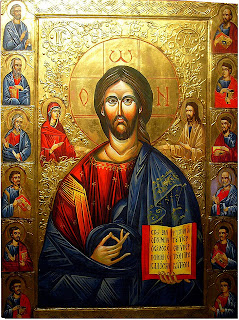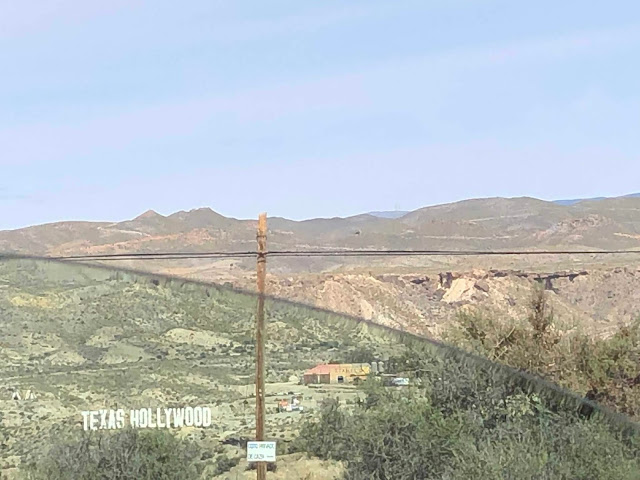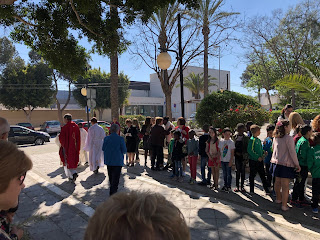Jesus The Teacher
Today I preached on the Gospel reading for our mid-day prayer service. So, here it is! The reading is Mark 4:1-20, and can be found here.
I want to know everything.
Really, I love learning, and I love that there’s always more to
learn. When I want to know something, I
want to know it quickly—thank heavens for Google. (And Wikipedia, though I am reluctant to
admit that I’ve used it.)
But even I am willing to admit that more information is not
always better. For example, have you
ever looked up your symptoms on the internet?
You may have discovered that your slight fever and that little rash on
your arm mean that you must have the measles.
Or that your runny nose and body ache means you have the swine flu. And that stomach ache surely means
appendicitis.
I may get annoyed when I don’t understand, but certainly
there is knowledge that does more harm than good.
We also know that knowledge progresses. We have prerequisites that teach the basics,
which must be completed before the advanced topics can be tackled. Jesus is The Teacher, and his way of moving
his students (disciples) forward is through parables.
Now, when Jesus’ parables are particularly difficult to
understand, I want to roll my eyes and ask him to speak clearly. Maybe his followers too are annoyed at their
own lack of understanding when they ask him what he means. In today’s Gospel, we have a parable that’s
not so difficult to understand, yet his disciples have trouble figuring it out.
He explains it to them, and also
explains why he speaks in parables: He
says it is because some are “not granted the mystery of the kingdom of God,”
and he wants those people to hear but not understand.
This seems to be a big theological problem for the Scripture
scholars. Why on earth would Jesus not
want to give everyone the knowledge of the Kingdom? The parable of the light not hidden under a
bushel basket, which we heard Monday, reminds us that Jesus is not interested
in hiding his message. Yet, he is aware
that some are not ready to hear it, and it could be more damaging if they were
to hear it and reject it. In fact, some scholars
say that this statement, some are “not granted the mystery of the Kingdom of
God,” comes from Mark, who gives the final outcome—that in the end, not
everyone will respond to the Good News.
So, what about speaking in riddles? On this, his feast week, let’s ask St.
Thomas. In his commentary on Boethius’
De Trinitate, Thomas Aquinas speaks to this question. Q2 A4 asks “Should divine things be veiled
and hidden with obscure words?” When I
read this question, my first thought was, “Well, no.” Wouldn’t Thomas want people to understand
what he was saying? And it certainly
doesn’t seem that he hides things from his readers.
But I’m wrong. Thomas
says that some divine things should be spoken in veiled language. He says that certain things can be said openly,
and others should be kept in private.
His answer becomes a comment about the role of the teacher in
discriminating information for the student, who may not be ready to grasp what
is being offered. Thomas begins by
saying, “A teacher should so measure his words that they help rather than
hinder his hearer.” We all know what
it’s like to listen to a lecture (or homily) that goes above our heads or does
not seem relevant to us. Our eyes glaze
over and we stop paying attention because we can’t understand (I remember
conference lectures in medieval musicology doing such a thing to me). As a teacher, part of my role is to adapt to
the needs and capacity of my students. A
teacher must be able to approach the topic from another direction when students
glaze over, so that what she wants to teach can be understood.
As Christians, we are all seeking to bring about the Kingdom
of God. In the Dominican tradition, we
use language of “charity” and “care of souls.” With the same goal in mind, the
Sacred Heart tradition speaks of “sharing (or being) the love of God in our
world.” We are to love each person we encounter. To love others is to value their unique gifts
and abilities, and to accept them as they are when they come to us. We love them by discerning their needs and
doing our best to fill them. For me, that
means attentive listening to the questions and comments of my students and
colleagues. It means doing my best to teach the subject matter that I am
charged with in a way that will be understood, a way that is faithful to the
tradition, and helpful for the faith of my students and their future ministries
and leadership.
We want all our students to be the fertile ground from which
the seed yields a hundredfold. We want
the seed to grow daily into deeper knowledge that no longer needs to be
hidden. Let us have discerning hearts
that recognize and value the gifts and limitations of our students and
colleagues, creating an environment of learning and exploring our faith for all
who come to our door.




Comments